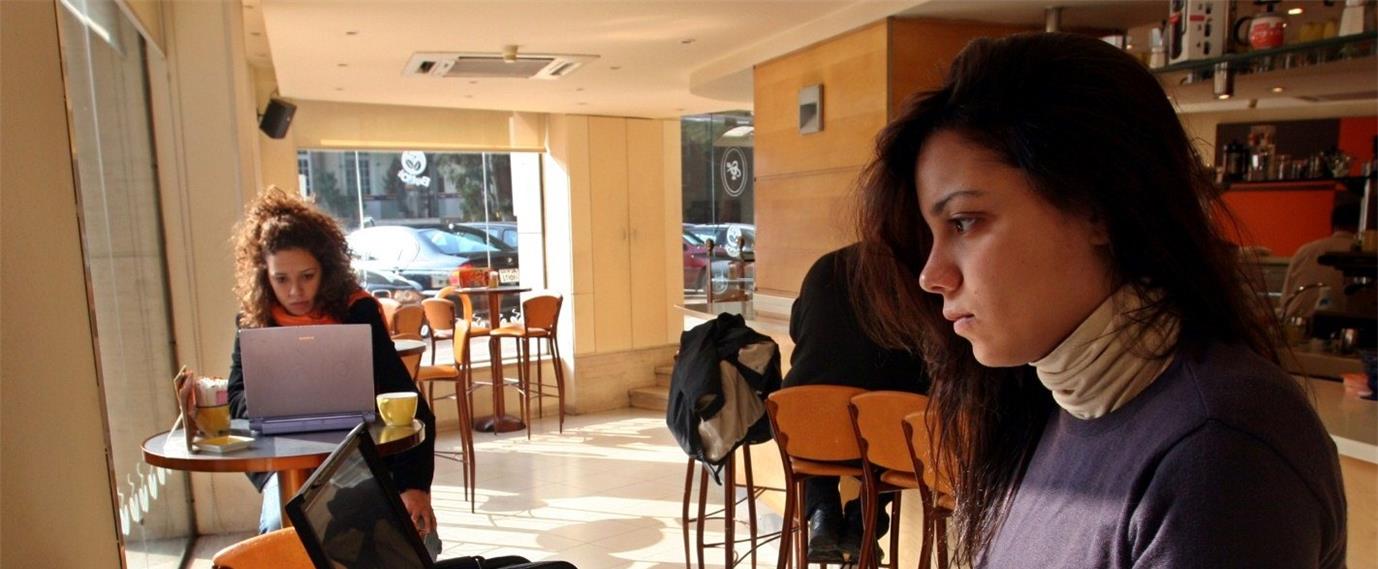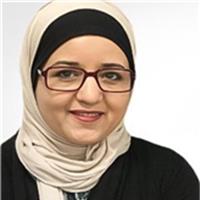ساسة بوست ونون بوست وهافينغتون بوست ومدونات الجزيرة مباشر ومدونات سكاي نيوز عربية وأخيرا مدونات الجزيرة.
ظهرت تلك المنصات على ساحة الإعلام العربي بصورة متتابعة لتؤكد على الدور البارز لمحتوى المدونات الإعلامي في فترة الثورة التقنية، ولتؤثر وتنقل الأفكار والمشاعر والقصص بعدما اندحرت مع مد طوفان وسائل التواصل الاجتماعي الذي بدأ مع ظهور الفيسبوك عام 2004 ثم تويتر عام 2006 ثم عشرات التطبيقات ومواقع التواصل الاجتماعي الأخرى.
عادت منصات التدوين لتضم الجميع.. الإعلامي اللامع وطالب الثانوي وربة المنزل والسياسي والأستاذ الجامعي.. لم يطرح السؤال أبدا: لماذا تراجعت مكانة المدونات في عصر السوشيال ميديا؟ لأنه من الطبيعي أن تأخد وسيلة إعلامية جديدة من وسيلة أخرى، لكن السؤال الآن يطرح وبقوة: لماذا الآن بعد سنوات عديدة من الاختفاء، تعود المدونات لتحتل هذه المساحة في ساحات الإعلام؟
ربما يرجع هذا الإقبال في اللحظة الراهنة إلى عدة أسباب، منها:
• ارتداد النشاط والتفاعل مرة أخرى إلى الساحات الافتراضية بعدما انتقل إلى الساحات الحقيقية:
في السنوات الأولى لإرهاصات الربيع العربي التي امتدت من بداية الألفية الثانية، شكلت المدونات منصات للتعبير الحر عن الرأي من أجل نشر الوعي حول قضايا المجتمع والحريات والانتهاكات. فحينما بدأ الحراك في تونس ومصر وسائر الدول العربية، كانت وسائل التواصل الاجتماعي التي استخدمها النشطاء والكتاب هي الساحة الأبرز التي طغت على المساحة التي كانت للمدونات، إلى جانب تحول هام في المعادلة، بعدما انتقلت الفرص المتاحة للتعبير عن الرأي من العوالم الافتراضية إلى الحقيقية في الشوارع والميادين ووسائل الإعلام، وأيضا المؤسسات الرسمية المعبرة عن الشعب. وكان النشطاء يستخدمون مصطلح "Download" للإشارة إلى أن الثورة قد تم تحميلها من العالم الافتراضي إلى العالم الحقيقي.
والآن في فترة ما بعد الربيع يبدو أن الأمر ارتد إلى المربع صفر، ليس فقط في مساحات السياسة وإنما في مساحات التعبير، فعاد التعبير عن الرأي مرة أخرى إلى المساحات الافتراضية سواء عن طريق المدونات أو الصفحات الشخصية للمدونين على وسائل التواصل الاجتماعي لظروف سياسية معروفة. وهذه المنصات الجديدة للتعبير عن الرأي تكفل للمدون ظهورا أكبر من ظهوره على مساحته الشخصية فقط.
• فوضى المحتوى على مواقع التواصل الاجتماعي:
برغم النجاح الكبير الذي حققته مواقع التواصل الاجتماعي، سواء في عدد المستخدمين (على سبيل المثال يستخدم الفيسبوك شهريًا 1.7 مليار إنسان من أصل 7.4 مليارات يعيشون على ظهر كوكبنا)، أو في الأرباح التي تحققها الشركة ( حققت شركة الفيسبوك أرباحا مقدارها 17 مليار دولار عام 2015 وحده)، فإن أبرز موقعين للإعلام الاجتماعي يفتقدون تقنية البحث التي تسهل الوصول غلى محتوى بعينه بسرعة وسهولة، وتفتقر إلى أدوات تسهل ذلك باستثناء أداة الوسم (هاشتاغ)، مما يعوق إمكانية العودة إلى محتوى بعينه وسط متاهة المحتوى الموجودة على مواقع وتطبيقات الفيسبوك وتويتر وإنستغرام، مما يجعل المدونات هي الوسيلة الأمثل للمحتوى التراكمي.
• أداة فعالة لترك البصمة الذاتية وجذب المزيد من المتابعين:
أحد الأهداف الأساسية للإعلام هو "إحداث التأثير". وعندما أصبح تأثير بعض الأفراد يساوي أو يتجاوز أحيانا تأثير منصات إعلامية كبيرة ومعروفة (على سبيل المثال الإعلامي المصري باسم يوسف لديه ثمانية ملايين متابع على حسابه على موقع تويتر، بينما صحيفة ذي غارديان البريطانية عدد متابعيها 5.8 ملايين)، أصبح الجميع يسعى لأي وسيلة بدورها قد تزيد عدد المتابعين ومنها المدونات، خاصة مع إضافة بعض المواقع إلى وصلات للصفحات الشخصية للكتّاب على عدد من مواقع التواصل الاجتماعي، فالمدونات تسهم إلى حد كبير في تسليط الضوء على الكاتب، مع حرص عديد من المنصات على نشر صورته الشخصية على مواقع التواصل مرفقة بتدوينته.
تحديات تواجه منصات التدوين في العالم العربي
• التنوع الجغرافي:
ثراء وتنوع الخلفيات الثقافية والظروف الاجتماعية والسياسية للقارئ في الوطن العربي وخارجه أمر قد يعتبره البعض ميزة كبيرة، لكنه في ذات الوقت تحد كبير لأنه يحتم انعكاس هذا التنوع على نوعية المحتوى المقدم على منصات التدوين. وهو أمر تحقيقه ليس سهلا كما رصدنا في ما تقدمه المنصات القائمة بالفعل، فمنصات التدوين العربية تستهدف بلدان الخليج والشام وشمال أفريقيا (مصر والسودان والمغرب العربي)، إضافة إلى عرب المهجر المنتشرين في أصقاع الأرض. ومؤخرا يمكن إضافة دول الجوار كتركيا وإيران حيث زادت نسبة المطلعين فيها على اللغة العربية لظروف سياسية معروفة..
برصد ما قدمته منصات التدوين على مدى السنوات القليلة الماضية، لا نستطيع القول إن إحدى هذه المنصات في العالم العربي نجحت في تجاوز هذا التحدي. قليلة هي الأصوات الخليجية والمغاربية على منصات التدوين، مقابل التدفق المستمر من الشام ومصر وفلسطين، ربما لأن معظم القضايا الساخنة تحدث في مشرق الوطن العربي. ويبدو أن أحدث هذه المنصات في العالم العربي -مدونات الجزيرة- أدركت ذلك التحدي قبل الانطلاق وسعت لتجاوزه، ويؤمل أن يمتد التنوع الجغرافي إلى أبعد من ذلك فتظهر أصوات من الأقليات في العالم العربي كالأكراد والأمازيغ والنوبيين والبدو و"البدون"، ليبقى السؤال: هل يستمر التنوع الذي ظهر في فترة البداية؟
• الإفلات من فخ الاستقطاب الأيدولوجي:
تتحول أحيانا هذه المنصات إلى ميكروفون أحادي الصوت موجه تبعا للسياسة التحريرية للمؤسسة التي ينتمى إليها والجهة التمويلية التي ترعاه، أو لتفضيلات معينة تتعلق بأيدولوجيات الفريق الذي يديرها.
• ميلان الدفة لصالح البوح بالتجارب الشخصية على حساب صناعة الأفكار.
تفتقد منصات التدوين الموجودة حاليا على ساحة الإعلام العربي إلى الجمع بين أمرين: الأول حث الكتَّاب على رواية قصتهم الفردية والمتميزة أيا كانت زاويتها، فلكل إنسان قصة متميزة لا يشاركه فيها أحد. والثاني خلق حالة من الزخم وصناعة الأفكار وطرق المساحات غير المطروقة، ثم التفاعل بين هذه الأفكار المختلفة من خلال حث الكتاب والجمهور على التفاعل وتناول ما ينشر ليس فقط بالتعليق القصير على صفحات التواصل الاجتماعي، ولكن من خلال الكتابة المرتدة لمقارعة الحجة بالحجة والفكرة بالفكرة أو لإلقاء الضوء على جانب معتم من الصورة، فتتحول أحيانا منصات التدوين إلى ساحة بوح وليست ساحة التقاء وتفاعل أفكار.
حتى الآن طغى البوح بالتجارب الشخصية على الجانب الآخر، وقليلة هي حالات التفاعل الحقيقية أو الجدل الحيوي التي خلقتها منصات التدوين حول فكرةٍ ما يكتب حولها أكثر من صوت، يذكر منها ما حدث حول مشكلات مُلحَّة في العالم العربي، كمشكلة الزواج أو قضية الحوار حول شخصية دينية معروفة.
ماذا يحدث في "غرفة التحكم" لمنصة التدوين؟
لكل منصة تدوين "غرفة تحكم" شبيهة بتلك التي نجدها في غرف الأخبار، تمر بها المدونات قبل أن تأخذ طريقها إلى النشر على المنصة، فماذا يجري في هذه الغرفة؟ وكيف يتم الحكم على المحتوى؟ ولماذا لا تنشر بعض المدونات وتنشر أخرى؟
إذا أخذنا منصة مدونات هافينغتون بوست نموذجا، نجد أن هناك مهامَّ يومية تجري في هذه الغرفة. فبداية يتم مراجعة كل ما ورد من تدوينات.. هذه المنصة تأتي إليها المدونات إما عبر البريد الإلكتروني أو عبر المدونة إذا كان الكاتب سبق له النشر من قبل. بعد مراجعة المحتوى وإجازته في ضوء السياسة التحريرية للمنصة.. وبصفة عامة هناك خطوط حمراء تتمثل في ألا يكون في المحتوى تحريض على عنف أو كراهية أو إهانة لمعتقدات الشريحة العامة من المتلقين، وبالطبع بعض المحاذير السياسية الأخرى.. بعد المراجعة والإجازة، يُرسَل محتوى المدونة إلى المراجعة اللغوية، ويتم تجهيز المدونة من ناحية الأمور التقنية وإضافة الصور اللازمة لها سواء الظاهرة في النشر الخارجي أو الداخلية، ثم يتم النشر. وتأتي المرحلة الأخيرة من متابعة عملية النشر، فكثيرا ما تحدث مراجعات لما تم نشره سواء على الموقع أو على وسائل التواصل الاجتماعي.
العاملون في "غرفة التحكم" يطمحون دوما إلى تقديم المحتوى الذي يحتاجه القارئ المتابع للمنصة في هذا التوقيت بالتحديد، خاصة أن بعض الأحداث المتسارعة في عالمنا العربي وفي العالم تتسم بالغموض فيأمل القارئ أن تساهم مدونة ما في توضيحها.. على سبيل المثال مدونة نهى خالد عن رحيل رئيس الوزارء التركي الأسبق عن السلطة.
ومن ناحية أخرى يتمنى الجالس في غرفة التحكم أيضا تلبية رغبة جميع الكتاب بنشر مدوناتهم، وهو أمر يستعصي أحيانا في ضوء محدودية الوقت المتاح لقراءة ومراجعة ونشر كل ما يصل من محتوى، وهو ما يشكل تحديا دائما لمن يقود غرفة التحكم في المدونات، ويحاول التغلب على هذا التحدي بأن يكون لديه خريطة واضحة أمامه لأهم المدونين في العالم العربي، فيوازن بين "من يكتب عن ماذا" إذا ما طرأت أحداث جارية تحتم تقديم محتوى يتعلق بقضية ما وبين المحتوى الذي يأتي من الكتاب بصورة عادية.
الوصول إلى تجربة تدوينية ناجحة
في فترة تاريخية يزيد فيها الاستقطاب السياسي والإعلامي وتفوق فيها الصراعات أي مرحلة تاريخية أخرى، تصبح لمنصات التدوين أهمية كبرى يعول عليها أمل كبير في إيجاد مساحة خارج هذا الصراع الإعلامي المؤجج الذي نشهده. وفي ذلك مسؤولية مشتركة بين إدارة المدونات و"شعب المدونات" إذا جاز لنا أن نطلق هذا المصطلح على محبي المدونات وكاتبيها.
من الأمور الجديرة ببذل الجهد، أن يكون لكل إدارة مدونة خريطة طريق ما وموازين توازن بين الأصوات أو الاهتمامات، وهو مجهود إضافي ليس بالهين خاصة في ضوء التدفقات اليومية على فرق العمل من عشرات المدونات والأفكار والتواصلات بعدها والموضوعات الجديدة التي تطرحها الظروف السياسية والدولية، لكنها بالتأكيد مهمة تستحق بذل الوقت والجهد، لأن نجاح وتنامي حجم منصة التدوين مرهون بهذه التفاصيل "الصغيرة"، إضافة إلى شروط أخرى كمساحة الحرية والتوازن بين عرض الأفكار والأيدولوجيات المختلفة.
أما " شعب المدونات" فيمكن الأخذ في الاعتبار أن وسائل الإعلام التقليدية أصبحت لا تطرب المشاهدين والمستمعين والمتابعين كما السابق، ودائما قصة شيقة تأخذ قالب التدوينة سواء أكانت في الاقتصاد أو التعليم، وإدارة الحياة، والتنمية البشرية، والتنمية الروحية، لها مذاق خاص ويتطلع القارئ إليها، فالكتابة في موضوعات عميقة ولكن من وجهة نظر فردية دائما ما يكون لها تأثير عظيم.
أيضًا الملاحظة الواجب ذكرها لجمهور المدونات هي "اسمح لهم أن يتفاعلوا مع ما تكتب".. فإدماج محتوى ما من وسائل التواصل الاجتماعي في متن المدونات وسيلة جيدة تحث على التفاعل مع محتوى المدونات ومشاركته.
من المهم أيضا إضافة تعريف مختصر في نهاية كل تدوينة عن الكاتب.. "إذا كان هناك فيل في الغرفة فعليك تقديمه".. هكذا قال الأستاذ الأميركي راندي بوش في محاضرة هامة بعنوان "المحاضرة الأخيرة". وربما يكون من الجيد أن يضاف سطران في نهاية كل تدوينة عن اهتمامات المدون غير التقليدية، مثل (مهتم بالزراعة المنزلية، مهتم برحلات السفاري في أفريقيا، أو أم لطفلين لا ينامان قبل الواحدة صباحا).. فتلك التعريفات البسيطة تدفع المدونين إلى الإبداع في تقديم أنفسهم وتضفي لمحة لطيفة على المحتوى.








































